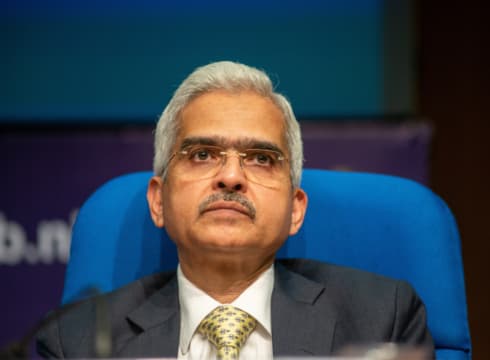On India’s central bank digital currency, e-rupee, Das said that the RBI soon plans to kick off pilots for new segments in the wholesale CBDC space
Touting UPI as perhaps the best payments system in the world, Das dismissed criticism that its creator NPCI has become a monopoly, adding that there was still room for UPI to grow
The RBI Governor, in the past, has termed cryptos a threat to India’s macroeconomic stability and has even called for an outright ban on VDAs
Inc42 Daily Brief
Stay Ahead With Daily News & Analysis on India’s Tech & Startup Economy
Reiterating the central bank’s stance on cryptocurrencies, Reserve Bank of India (RBI) Governor Shaktikanta Das on Thursday (December 11) said that digital currencies pose huge risks for emerging economies.
“Our position, my position and the RBI’s position on this (cryptocurrencies) remains unchanged irrespective of who does what… For emerging market economies and for advanced economies also, travelling down that path will create huge risks which will be very difficult to contain going forward,” Das was quoted as saying by Reuters.
His comments came in response to a question about the US SEC approving the first listed exchange traded funds for tracking bitcoin, Even as cryptocurrencies see wider acceptance in other countries, Das said that the RBI’s stand on cryptos remains unchanged.
The RBI Governor, in the past, has termed cryptos a threat to India’s macroeconomic stability and has even called for an outright ban on such virtual digital assets (VDAs). Not just this, he has previously also equated crypto trading with gambling and has even said that private cryptocurrencies would be the cause of the next financial crisis.
On India’s central bank digital currency, e-rupee, Das said that the RBI soon plans to kick off pilots for new segments in the wholesale space. He also added that the central bank was working on the ‘programmability’ of the e-rupee to enable cash transfers, especially direct benefit transfers for farmers.
Speaking to the media, Das also highlighted that RBI was actively looking at model-based artificial intelligence lending by financial entities.
Meanwhile, Governor Das also reiterated that the RBI and the National Payments Council of India (NPCI) are in talks with several countries to scale up the adoption of unified payments interface (UPI) for cross-border transactions.
Touting UPI as perhaps the best payments system in the world, Shaktikanta Das attributed the success of the platform to fintech players. He also dismissed criticism that its creator NPCI has become a monopoly, adding that there was still room for UPI to grow and emerge and become a world leader in the payments ecosystem.
Meanwhile, the newest comment from the RBI Governor echoes similar sentiments made by him in the past and the posture adopted by the Centre. The union government took an active stance for a global framework to regulate crypto assets during its erstwhile G20 presidency.
Not just this, Finance Minister Nirmala Sitharaman also actively pitched for such a regulation in partnership with the IMF and the FSB. The joint G20 declaration also supported swift implementation of the Crypto-Asset Reporting Framework (CARF) that mandates reporting of tax information on crypto transactions in a standardised manner and fosters exchange of crypto-related data between nations.
Earlier last year, Prime Minister Narendra Modi also called for a global framework to regulate cryptocurrencies.
The Centre has also opted for a heavy taxation regime on cryptos to likely dissuade users from trading in crypto and curb the usage of digital currencies for laundering money and financing terror activities.
This includes a 30% tax on gains from crypto transactions and a separate tax deducted at source (TDS) on crypto transactions of above INR 10,000. On top of that, all crypto exchanges have to be registered with the Financial Intelligence Unit (FIU) of the Finance Ministry and comply with money laundering norms.
{{#name}}{{name}}{{/name}}{{^name}}-{{/name}}
{{#description}}{{description}}...{{/description}}{{^description}}-{{/description}}
Note: We at Inc42 take our ethics very seriously. More information about it can be found here.


